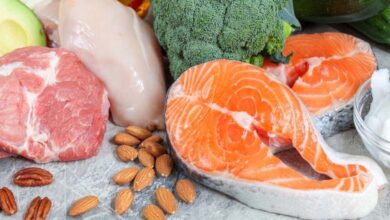Plastic in Our Plates: Foods Becoming a Health Threat

A recent study conducted by scientists in the United States has revealed that certain types of seafood contain microplastic particles, posing a potential threat to human health. The study was published in the journal Frontiers in Toxicology, with a team from Portland University and Oregon University analyzing the tissues of various marine species.
-
5 Foods to Boost Energy and Ease Winter Fatigue
-
“Fatty Meats” in the Spotlight: The Most Harmful Foods for the Liver
The study included samples from black sea bass, lingcod, king salmon, herring, and pink shrimp. The results showed that pink shrimp had the highest concentration of microplastic particles, followed by black sea bass and lingcod. Conversely, king salmon was the least contaminated by these particles.
-
5 Reasons Why Blueberries Are Among the Best Health Foods
-
Best Foods to Prevent Colorectal Cancer for Generation Z
The researchers also found that smaller marine organisms tend to accumulate more microplastics in their bodies compared to larger species. These findings highlight the need for further research to understand how microplastic particles transfer into the tissues of marine organisms.
-
4 Foods That Boost Weight Loss with an Effect Similar to “Ozempic”
-
Why do some pregnant women crave non-food substances like dirt?
However, the study’s authors emphasized that these results do not suggest abandoning seafood consumption, which remains a rich source of health benefits. They also noted that microplastic particles can enter the human body through various food sources, such as bottled water, beef, and certain plant-based products.












